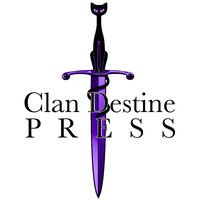By Stephen Johnson
 I’m past the halfway point on the latest Spotlight series manuscript. The body count stands at one, a minimalist victim rate compared to my first book, Tugga’s Mob. Fear not, more blood will be spilled before the final page. I’m edging to that climax, slowed in part by the knowledge it will face the Harry The Horse phase.
I’m past the halfway point on the latest Spotlight series manuscript. The body count stands at one, a minimalist victim rate compared to my first book, Tugga’s Mob. Fear not, more blood will be spilled before the final page. I’m edging to that climax, slowed in part by the knowledge it will face the Harry The Horse phase.
Harry Lovett, aka Harry The Horse, departed for the chief sub’s bar behind the Pearly Gates in the early '80s, a few years after I joined the ABC as a cadet. It was a bygone era that Hollywood would portray with rowdy, smoke-filled newsrooms, journos at the pub. Sometimes after work.
It was an exciting and intimidating environment. As a country lad – from Geelong – I was rated lower than a snake’s belly in the Melbourne media hierarchy. The boss made it bluntly clear I was there to learn proper journalism. I would not go near a camera for 12 months. Harry The Horse, and his fellow sub editors, were going to whip me into shape, figuratively speaking. I tugged the forelock. ‘Yes sir.’
More
Cape of Talent
Squiggle Practise: Becoming a Better Writer
Book Peek: Inside Tugga's Mob
That command was broken – on day two. The senior reporters were MIA, so the chief of staff pushed me out the door with a 16mm film crew to save a 19th century terrace in St Kilda. It was a less than glorious debut – nerves made the radio and television microphones rattle so much the sound was unusable.
The building survived. I was consigned to a desk to churn out radio copy. At the end of the office was the goldfish bowl where the subs wrestled with the required 10 copies of every story. It was excruciating to witness the frustrated sighs, head shakes, growls, thrown pencils, furious deadline rewrites. Was that my story being shredded?
Smarter reporters knew it was wiser to file and run. Newsrooms were not PC palaces. Workplace bullying was never part of the subs’ lexicon. Ridicule and profanity worked better.
Then my luck ran out. I watched with horror as Harry The Horse emerged from the goldfish bowl with my copy scrunched in his hand. Bugger. It was a 15-metre walk. Phar Lap could have circled Flemington racecourse twice in the time it took Harry to reach my desk.
‘Who the hell is Elton John?’
I was stunned. It was 1979, everyone knew him. The story was about the superstar’s next tour.
‘He’s a British pop singer.’
‘Well, why didn’t you put that in here.’ Harry waved the offensive, incomplete copy. ‘Old people don’t know that. Never assume.’
Muttering, Harry retired to labour over my story for an eternity. I bravely avoided the pub break to listen to the lunchtime bulletin. Another surprise awaited – the only changes were the three extra words: ‘British pop singer’. I looked at the goldfish bowl where Harry gave me the tiniest of smirks.
I learned to fear and respect sub editors as a young journo. Harry The Horse has become my personal euphemism for manuscript editing. It is an ego-bruising experience after years clawing to the top of the media hierarchy. I’m in new territory. At times I feel like that ABC cadet again, in the hands of wiser scribes who help refine my raw words into a coherent novel suitable for public consumption.
Cheers Harry.
